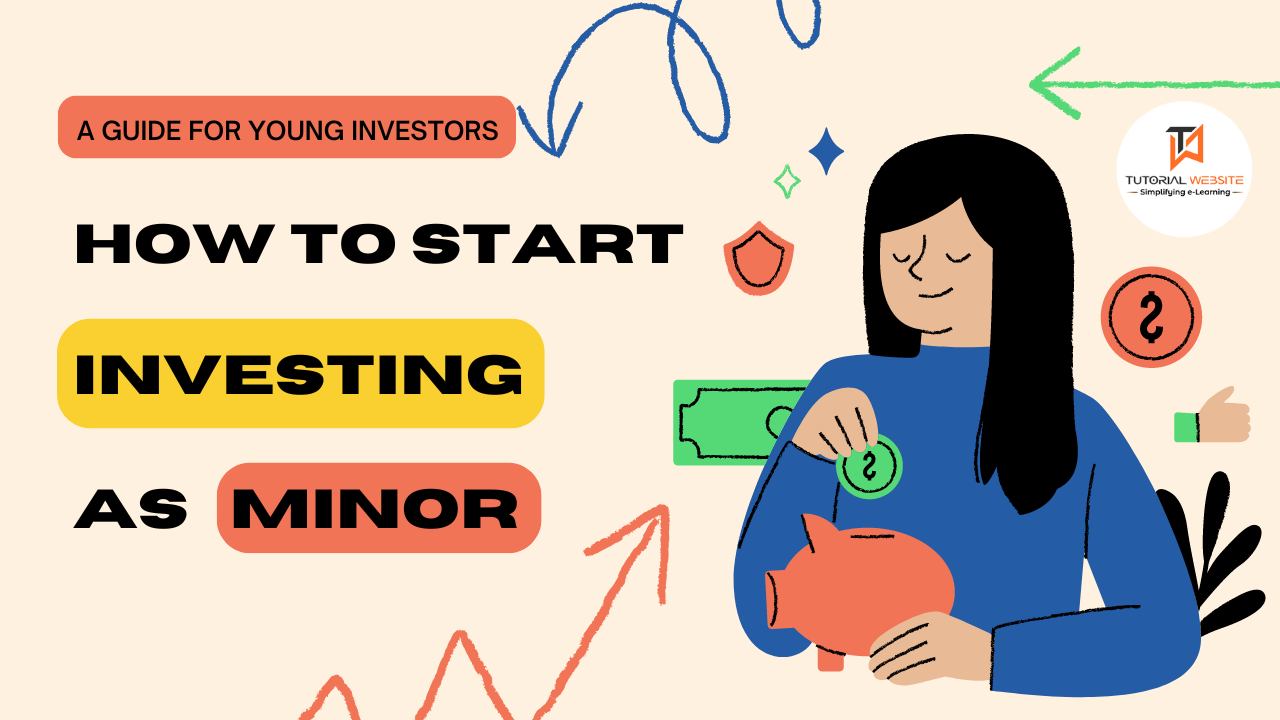Investing is an excellent method for building wealth over time, and starting young can provide you with a significant advantage. Even if you’re a minor, you can start investing with the right advice and tools. In this article, we’ll explain you how to start investing as a minor and how to grow your money wisely.
Suggested Read: Top Investment Strategies for 2024-25: Maximize Your Returns
What is investing?
Investing entails putting money into financial assets such as stocks, bonds, or mutual funds in the hopes of making more money over time. Unlike saving, which normally involves saving money in a low-interest bank account, investing aims to increase your money by taking risks.
Why Should You Invest as a Minor?
Starting to invest early comes with several benefits:
- Time: The sooner you start, the more time your investments have to grow. This is known as compound interest, in which your earnings increase over time.
- Learning: Investing helps you learn important money skills and discipline.
- Financial Freedom: It sets you on the path to becoming financially free and stable.
Also Read: 10 Smart Financial Tips to Increase Your Savings
Steps to Start Investing as a Minor
1. Learn the Basics fundamentals
Before you begin investing, you should understand the fundamentals. Here’s how to do it:
- Read books: Joel Greenblatt’s “The Little Book That Still Beats the Market” and Robert Kiyosaki’s “Rich Dad Poor Dad for Teens” are excellent starting points.
- Online Resources: Sites such as Investopedia provide free investment tutorials and articles.
- Courses and Workshops: Find local or online courses designed for young investors.
2. Talk to Your Parents or Guardians
As a minor, you’ll need an expert’s help to start investing. Here’s how to approach the conversation:
- Explain Your Interests: Describe why you want to start investing and what you want to achieve.
- Seek Guidance: Request for their support and guidance. They may already have experience and can offer valuable opinions.
3. Open a Custodial Account
Minors cannot open investment accounts on their own. Instead, you’ll need a custodial account. This is how it works.
- Custodial Accounts: These are investment accounts in your name that are managed by a parent or guardian until you reach adulthood.
- Types of Accounts: Common account types are UGMA (Uniform Gifts to Minors Act) and UTMA (Uniform Transfers to Minors Act).
- Brokerage Firms: Many brokerage firms, including Vanguard, Fidelity, and Charles Schwab, provide custodial accounts.
4. Start Small and Diversify
When you begin investing, it’s wise to start small and diversify your investments. Here’s how:
- Start Small: Begin with a modest amount of money to minimize risk while you learn.
- Diversify Your Investments: To reduce risk, spread your investments across different types of assets. For example, you can invest in stocks, bonds, and mutual funds.
5. Choose the Right Investments
It’s important to pick the right investments. Here are some good options for younger investors:
- Stocks: Investing in individual companies. Look for well-known companies with a good track record.
- Mutual Funds and ETFs: These funds pool money from many investors to buy a diverse portfolio of stocks and bonds.
- Savings Bonds: Low-risk investments issued by the government.
6. Monitor and Learn
Investing is not a one-time activity. It requires continuous attention and learning:
- Keep an eye on your investments: Regularly check how they’re doing.
- Stay updated: Follow financial news and trends to make informed decisions.
- Learn from mistakes: Everyone makes them. Use them to get better.
Also Read: Smart Ways to Achieve Financial Independence Without a Job
Practical Advice for Young Investors
1. Be patient
Investing is a long-term game. Don’t expect to become rich overnight. Patience is essential for success in investing.
2. Focus on Quality
Invest in companies and funds that have a proven track record and effective management. Avoid high-risk businesses that offer quick returns.
3. Reinvest Dividends
If your investments pay dividends, consider reinvesting them rather than cashing them out. This can help you increase your investment faster.
4. Set goals
Set clear investment goals. Knowing your goals, whether you’re looking to save for education, buy a car, or build a nest egg, can help you stay focused.
5. Consult Financial Advisor
Consult with a financial advisor, especially if you’re unsure about specific investment decisions. They can offer personalized guidance based on your unique situation.
Wrapping Words
Investing as a minor can lead to financial freedom. You can start building your wealth early by learning, seeking advice from your parents or guardians, and making wise financial decisions. Remember that effective investment needs patience, discipline, and ongoing research. Good luck with your investments
FAQs
Starting early allows you to benefit from compound interest and learn valuable financial skills.
You can start by opening a custodial account with the help of a parent or guardian
Stocks, mutual funds, ETFs (exchange-traded funds), and savings bonds are commonly suitable options.
Consider factors like risk tolerance, investment goals, and time horizon. Consulting a financial advisor can also help.
Reading books, attending workshops, and using online resources like financial websites and blogs can help you expand your knowledge.
Aman Kumar is the Financial Expert and Advisor. He has been a worked over 10+ years, covering mutual funds, insurance, banking, real estate, taxation and financial planning. He is not a SEBI Registered Financial Advisor.



